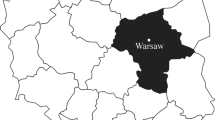Abstract
Renewable energy is often associated with the production of clean electricity and free of significant adverse impacts. However, several studies have been highlighting the importance of the assessment of social impacts of these technologies, including not only the benefits but also the potential negative aspects most frequently affecting local population. The energy matrix in Brazil is already built up on a renewable system largely supported on hydropower but other technologies with special emphasis on wind power start to have a major role, with a strong growth forecasted for this sector in the coming years. This article discusses the integration of solar and wind power in the Brazilian electricity system focusing on the social awareness and acceptance for the population living in high potential regions. For this, a questionnaire was proposed with the aim of evaluating the level of knowledge of wind and solar power, their social acceptance and perceptions towards cost, local development and environmental impacts. The questionnaire was implemented in an academic institution in the State of Rio Grande do Norte (RN) including students and professors as key actors for the present and future energy policy decision making. The implementation process and the obtained results are described allowing to conclude on the high level of acceptance of solar and wind power in the country and the region, with low evidence of not in my backyard syndrome.








Similar content being viewed by others
References
Abeeolica. (2014). Boletim Anual de Geração de Eólica 2014. São Paulo, Brazil. (in Portuguese).
Andrade, C., Rosa, L., & da Silva, N. (2011). Generation of electric energy in isolated rural communities in the Amazon Region a proposal for the autonomy and sustainability of the local populations. Renewable and Sustainable Energy Reviews, 15(1), 493–503.
Assefa, G., & Frostell, B. (2007). Social sustainability and social acceptance in technology assessment: A case study of energy technologies. Technology in Society, 29(1), 63–78.
Brown, K. B. (2011). Wind power in northeastern Brazil: Local burdens, regional benefits and growing opposition. Climate and Development, 3(4), 344–360.
Butler, C., Demski, C., Parkhill, K., Pidgeon, N., & Spence, A. (2015). Public values for energy futures: Framing, indeterminacy and policy making. Energy Policy, 87, 665–672.
Cochran, J., Mai, T., & Bazilian, M. (2014). Meta-analysis of high penetration renewable energy scenarios. Renewable and Sustainable Energy Reviews, 29, 246–253.
Conrad, K., & Henner, B. (2011). The social complexity of renewable energy production in the countryside. Electron Green Journal, 1(31), 1–18.
Devine-Wright, P. (2013). Explaining ‘NIMBY’ objections to a power line: The role of personal, place attachment and project-related factors. Environment and Behavior, 45, 761–781.
Echegaray, F. (2014). Understanding stakeholders’ views and support for solar energy in Brazil. Journal of Cleaner Production, 63, 125–133.
EPE-Empresa de Pesquisa Energética. (2015). Anuário Estatístico de Energia Elétrica 2014. Rio de Janeiro, Brasil. (in Portuguese).
Fast, S. (2013). Social acceptance of renewable energy: Trends, concepts, and geographies. Geography Compass, 7, 853–866.
Karytsas, S., & Theodoropoulou, H. (2014). Socioeconomic and demographic factors that influence publics’ awareness on the different forms of renewable energy sources. Renewable Energy, 71, 480–485.
Ministério de Minas e Energia and EPE. (2015). Plano decenal de expansão de energia 2024. Brasília, Brasil. (in Portuguese).
Oliveira, C. & Araújo, R. (2015). Guia do Setor Eólico do Rio Grande do Norte, Ed. IFRN, Natal, Brasil. (in Portuguese).
Organisation for Economic Co-operation and Development. (2013). CO 2 emissions from fuel combustion 2013. Paris: IEA/OECD.
Pinto, M. (2013). Fundamentos da Energia Eólica. Rio de Janeiro: Editora GEN. (in Portuguese).
Pereira, E. B., Martins, F. R., Abreu, S. L., & Rüther, R. (2006). Atlas brasileiro de energia solar. São Paulo: Editora São José dos Campos. (in Portuguese).
Pereira, A. O, Jr, Costa, R. C., Costa, C. V., Marreco, J. M., & Rovere, E. L. L. (2013). Perspectives for the expansion of new renewable energy sources in Brazil. Renewable and Sustainable Energy Reviews, 23, 49–59.
Ribeiro, F., Ferreira, P., & Araújo, M. (2011). The inclusion of social aspects in power planning. Renewable and Sustainable Energy Reviews, 15, 4361–4369.
Ribeiro, F., Ferreira, P., Araújo, M., & Braga, A. C. (2014). Public opinion on renewable energy technologies in Portugal. Energy, 69, 39–50.
Shamsuzzoha, A. H. M., Grant, A., & Clarke, J. (2012). Implementation of renewable energy in Scottish rural area: A social study. Renewable and Sustainable Energy Reviews, 16, 185–191.
Silva, N., Rosa, L., Freitas, M., & Pereira, M. (2013). Wind energy in Brazil: From the power sector’s expansion crisis model to the favorable environment. Renewable and Sustainable Energy Reviews, 22, 686–697.
Simas, M., & Pacca, S. (2014). Assessing employment in renewable energy technologies: A case study for wind power in Brazil. Renewable and Sustainable Energy Reviews., 31, 83–90.
van Els, R., Vianna, J., & Brasil, A, Jr. (2012). The Brazilian experience of rural electrification in the Amazon with decentralized generation—The need to change the paradigm from electrification to development. Renewable and Sustainable Energy Reviews, 16(3), 1450–1461.
Yuan, X., Zuo, J., & Huisingh, D. (2015). Social acceptance of wind power: A case study of Shandong Province, China. Journal of Cleaner Production, 92, 168–178.
Acknowledgments
The authors wish to acknowledge the support of ALGORITMI research Centre at University of Minho. This work has been supported by COMPETE: POCI-01-0145-FEDER-007043 and FCT—Fundação para a Ciência e Tecnologia within the Project Scope: UID/CEC/00319/2013. The authors are grateful to the Rectory of Instituto Federal de Educação, Ciência e Tecnologia do Rio Grande do Norte (IFRN) who allowed for the implementation of the survey.
Author information
Authors and Affiliations
Corresponding author
Annex: Questionnaire
Annex: Questionnaire
The questionnaire was divided in six sections. The respondent is firstly asked to characterize his/her socio-demographic conditions and his/her situation in IFRN. The questionnaire is then divided in two similar parts, one addressing wind power and the other one addressing solar power.

Rights and permissions
About this article
Cite this article
de Sena, L.A., Ferreira, P. & Braga, A.C. Social acceptance of wind and solar power in the Brazilian electricity system. Environ Dev Sustain 18, 1457–1476 (2016). https://doi.org/10.1007/s10668-016-9772-0
Received:
Accepted:
Published:
Issue Date:
DOI: https://doi.org/10.1007/s10668-016-9772-0




